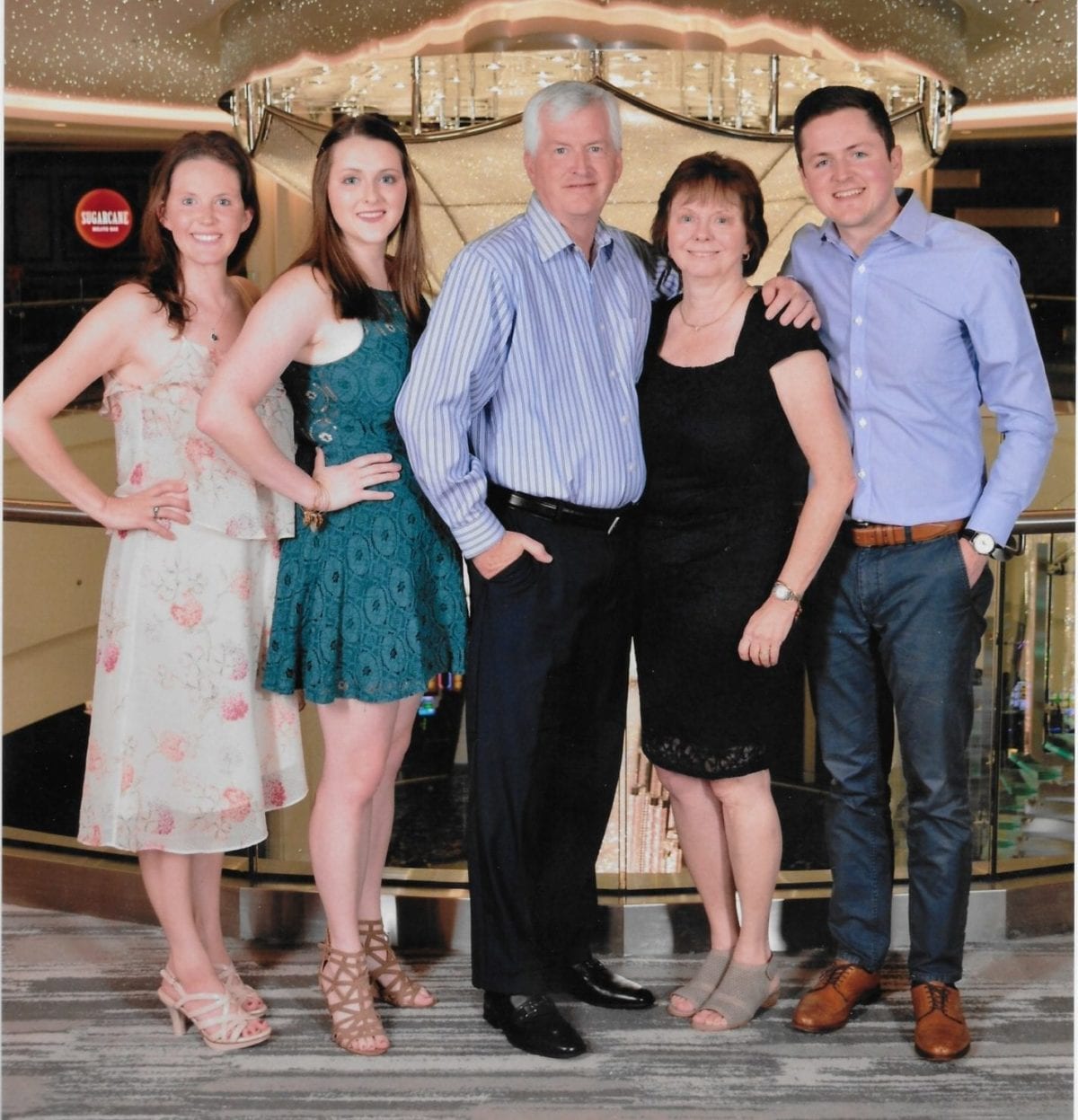
As a child, Madison Galligan gave check-ups to her stuffed animals. Now a second-year DMU osteopathic medical student, she likely was influenced in part by her parents, Don Galligan, D.O.’84, and Doreen Rioux-Galligan, D.O.’85, who met at DMU.
“Growing up, my family was always so focused on helping others – strangers, people at school and church – that I felt it was in my blood,” Madison says.
At a time when so many aspects of life feel unsure, the family members remain deeply committed to medicine, even as each has had to make adjustments. Rising coronavirus cases reduced the volume of Don’s anesthesiology group by 80 percent. Doreen, a primary care provider who practices as Dr. Doreen Rioux, and her colleagues switched to telemedicine; she saw approximately 10 patients a day, less than half of her prepandemic count.
“That was a whole new world for me,” she says. “I’m used to touching my patients. People were used to shaking my hand and giving me a hug.” Richard Ma, D.O.’21, observed that firsthand when he did his first family medicine rotation with her in February. Her style is why he returned for another rotation at her practice in October.
“Her dedication to her patients is exemplified in each and every one of her patient encounters,” he says. “Her relationship with her patients goes beyond just that of a physician, but also as their trusted friend. Dr. Rioux is the perfect example of the kind of physician I strive to be.”
Doreen also assisted at a COVID-19 screening clinic, which she acknowledges wasn’t the “most practical thing.”
“I’m in my 60s, we have one grandchild and one on the way, and I take care of my father,” she says.
Her bigger concern, however, were patients who needed non-coronavirus-related care but who canceled appointments out of fear. “We saw blood sugar levels, blood pressure, triglycerides and cholesterol all go up,” she says. “People were more sedentary and eating things they don’t normally eat.”
Don’s practice is back to 90 percent volume but not back to normal. Like other providers, he wears full personal protective equipment, and every surgical procedure takes 40 to 50 minutes longer now to allow staff to sanitize the patient’s room before and afterward.
“Anyone who sets foot in the surgery suite is tested for COVID-19,” he says.
“It’s something to be respected and feared.”
And adapted to. Madison has done most of her DMU courses online in her apartment across Grand Avenue from campus. The University canceled a spring break health service trip to the Dominican Republic that she had planned to join. “I knew when they canceled it, this was not going to be good for the world. That was heartbreaking,” she says.
She is maintaining perspective, however. “I’m kind of thankful we were first-year students when this happened. We didn’t have to think about boards or rotations,” she says. “I know how much more I need to be careful. I want to have the same connections with patients that my mom does, but we’ve lost the ability to have physical contact. That makes me sad, but it also gives me the opportunity to be creative. I’ll have to approach patients differently, based on my mom’s experience with telehealth.”
Editor’s note: The pandemic situation has continued to change since these stories about our valiant graduates were written. As one example, as of mid-January Don Galligan, D.O.’84, not only is doing cases in anesthesia but also is working shifts in the intensive care unit to support the intensivists. Doreen Rioux-Galligan, D.O.’85, is providing extensive telehealth care. “The numbers are so large, we have trouble fitting people in,” she said on Jan. 15. “Our goal now as primary care is to manage everyone and keep patients out of the hospital if possible.” She also is volunteering hours as a backup telehealth urgent care provider. “Life has become a war zone,” Dr. Rioux-Galligan said. “We have hospital tents set up outside the hospital for overflow patients and refrigerated cars for bodies outside our building. I think it is interesting to read what we said in the spring versus the horror we are now seeing.”

